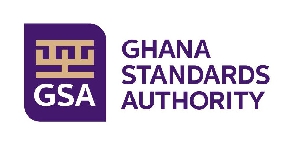The Ghana Standards Authority (GSA) has organized a sensitization programme on the management for aflatoxins for more than 300 actors in the grain value chain in the Ashanti on Region.
The sensitization programme held in three districts of the Ashanti Region was to educate agricultural actors in the grain value chain and the public on standards requirements and the dangers and management of aflatoxins in grains.
The team visited the Asafo market and the Aboabo central market where interactions were held with the market Queen and elders, grains traders and corn mill operators in the markets.
During the training, Mr George Kojo Anti, the Business Development Manager at the GSA, expressed worry about the Aflatoxin menace and encouraged the extension officers to educate the farmers on the management of the Mycotoxins.
"Adhering to these good farming practices will not only help you produce grains free from aflatoxins but will also allow you to get premium prices on products sold," he added.
He pointed out that Aflatoxins were not only causing harm to consumers but also affecting the country’s economic growth due to the continuous rejection of grains by the European Union (EU).
Farmers, traders, and Agricultural officers in Ejisu, Bosomtwe and Kwabere, were trained on the methods of reducing aflatoxins in grains, mainly, maize, groundnuts, sorghum, agushie and rice.
They were taken through various ways aflatoxins contaminates grains and taught practices that could help reduce the menace.
The sensitisation programmes were undertaken by the National Aflatoxin Sensitization and Management (NASAM) project with support from the Alliance for a Green Revolution in Africa (AGRA).
The project aims to catalyse and sustain an inclusive agricultural transformation by improving food safety and security through increased knowledge about aflatoxins, its impact and management.
The project has directly impacted over 10,000 actors, including farmers in the grain value chain throughout the country over the two years.
Business News of Wednesday, 30 September 2020
Source: GNA
Ghana Standards Authority sensitises grain value chain operators, public on aflatoxins
Entertainment












